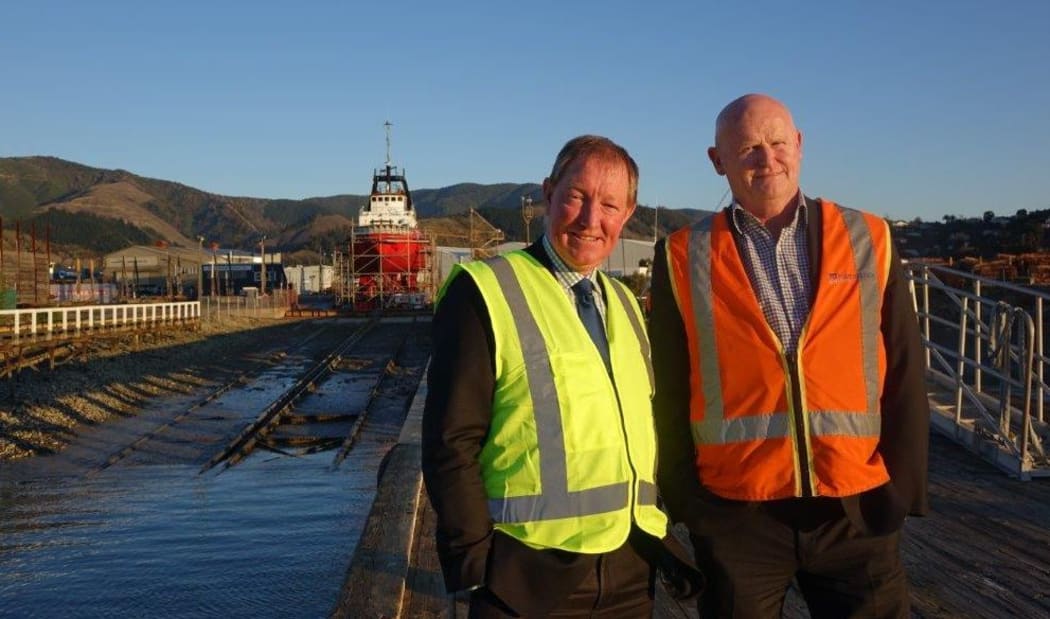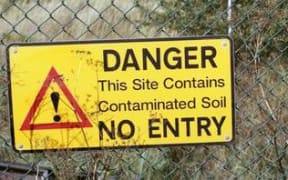The Government is to give $200,000 towards a study on how to clean up an area at Port Nelson which is considered one of New Zealand's most toxic sites.

Environment Minister Nick Smith and Port Nelson chief executive Martin Byrne at the Calwell Slip in Nelson. Photo: RNZ/ Tracy Neal
Minister for the Environment Nick Smith says the Calwell Slip, which is contaminated from chemicals used in ship maintenance since the 1970s, ranks among the Government's top clean-up priorities.
Dr Smith announced this afternoon that the money for the study will come from the Government's contaminated sites remediation fund.
The job of fixing the contaminated seabed is expected to cost millions of dollars.
The remainder of the expected $400,000 study cost will come from the port company and the Nelson City Council.
The council said the slipway has been in operation since 1970 and is the third largest slipway in New Zealand, making it a significant commercial asset to the Nelson region.
Port Nelson chief executive Martin Byrne said the funding would help the company achieve an important goal of cleaning up an area that was found to be contaminated after routine sediment monitoring was undertaken in 2009, before maintenance dredging of the slipway basin.
The council's planning and regulatory chairman Brian McGurk said it was a critical project needed to help clean up Nelson's environment.
Earlier phases of the project have defined the extent of the contamination and set remediation targets.
Investigations have also been completed on a number of potential remediation options for the site, the council said.
The main contaminants are tributyltin and copper. Tributyltin was used as an anti-foul coating on ship hulls but its use was stopped in the 1990s, however, residual levels may still be present on some older vessels, the council said.
Calwell Slipway is now managed so that all contaminated material from ship maintenance is collected, avoiding further contamination.
Dr Smith said a decision on further funds would be made after the study was finished.




